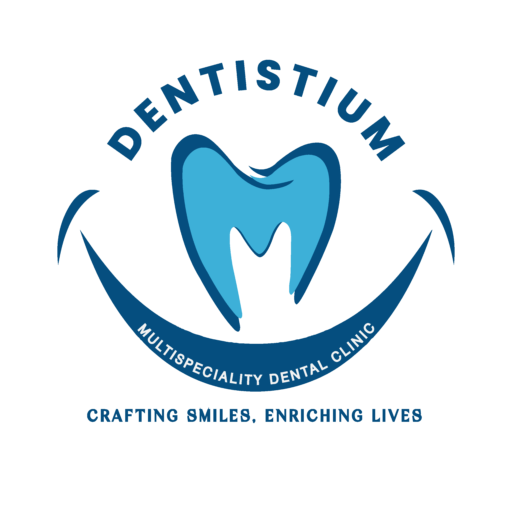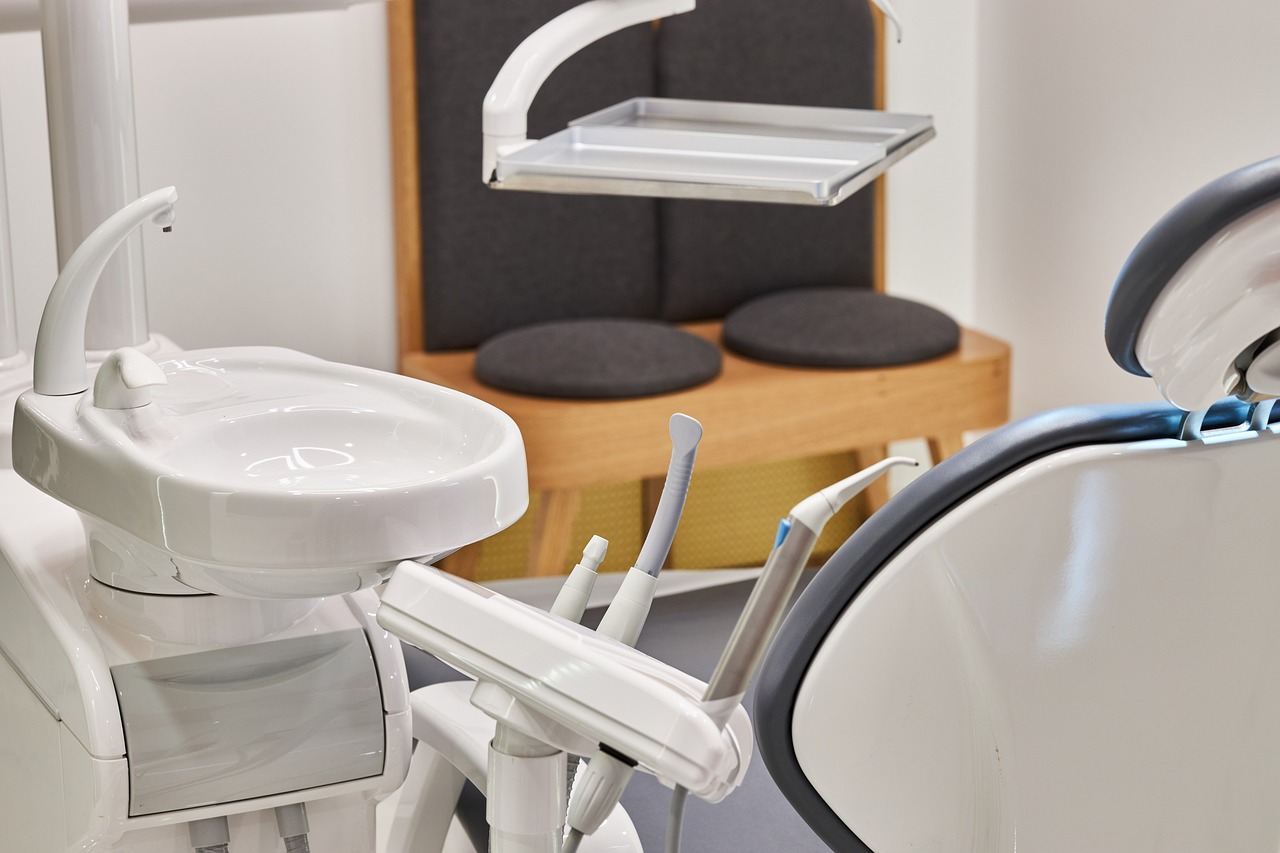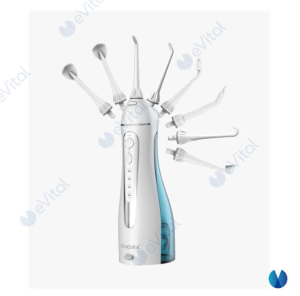Dead Tooth: Symptoms, Causes, and Treatment

A “dead tooth” might sound scary, but it’s a common dental issue that many people face. Understanding the symptoms, causes, and treatment options can help you take the right steps to preserve your oral health. At Dentistium, we specialize in diagnosing and treating dental conditions, including dead teeth. Let’s take a closer look at what a dead tooth is and how to deal with it.
What is a Dead Tooth?
A dead tooth, also known as a non-vital tooth, is a tooth that has lost its blood supply.
This happens when the pulp, the soft tissue inside the tooth that contains nerves and
blood vessels, becomes damaged or infected. Without a healthy blood supply, the
tooth cannot stay alive, and it will eventually die.
Symptoms of a Dead Tooth
A dead tooth may not always be immediately painful, but there are several signs to
look out for. If you notice any of the following symptoms, it’s important to see a dentist
at Dentistium as soon as possible:
- Discoloration of the Tooth: One of the most noticeable symptoms of a dead tooth
is a change in color. The tooth may turn gray, brown, or even black due to the lack of
blood flow and decay. - Pain or Sensitivity: While not all dead teeth cause pain, some may be sensitive to
hot or cold. In some cases, a dead tooth may become infected, leading to severe pain
or discomfort. - Swelling and Tenderness: If the tooth has become infected, you might experience
swelling around the affected area, including the gums. This swelling can be painful and
may also lead to a bad taste or odor in the mouth. - Abscess: An abscess, which is a pocket of pus, can form around the dead tooth as
a result of infection. This may cause a throbbing pain, fever, and swelling.
Causes of a Dead Tooth
There are several reasons why a tooth can become non-vital. Some of the most
common causes include:
- Tooth Trauma or Injury: A blow to the tooth, such as during a sports injury or
accident, can damage the pulp, leading to a dead tooth. Even if there is no immediate
pain, the damage can cause the tooth to die over time. - Untreated Tooth Decay: If a cavity is not treated in time, bacteria can spread into
the pulp of the tooth, causing an infection that leads to the tooth dying. - Repeated Dental Procedures: Frequent dental treatments on the same tooth, like
fillings or crowns, can sometimes cause damage to the pulp over time, leading to tooth
death. - Gum Disease: Advanced gum disease (periodontitis) can affect the blood supply
to the tooth, causing the pulp to die.
Treatment for a Dead Tooth
If you suspect that you have a dead tooth, it’s important to visit Dentistium to get an
accurate diagnosis and appropriate treatment. There are several options for treating
a dead tooth:
- Root Canal Treatment: The most common treatment for a dead tooth is a root
canal. During this procedure, the dentist removes the infected pulp, cleans out the
canal, and fills it with a special material to prevent further infection. Afterward, the
tooth is sealed and often topped with a crown to restore its strength and function. - Tooth Extraction: In some cases, if the damage is too severe or the tooth is
beyond saving, the dentist may recommend extraction. This is usually the last resort
if other treatments are not viable. - Dental Implant: If the tooth is extracted, a dental implant can be used to replace
the missing tooth. This permanent solution involves placing a titanium post into the
jawbone, which supports a crown that looks and functions like a natural tooth.
How to Prevent a Dead Tooth
Preventing a dead tooth involves good oral hygiene and taking care of your teeth.
Here are some tips:
- Brush your teeth at least twice a day with fluoride toothpaste.
- Floss daily to remove plaque and food particles from between your teeth.
- Wear a mouthguard when playing sports to prevent injuries to your teeth.
- Visit Dentistium regularly for checkups and cleanings to catch any potential issues
early.
A dead tooth can be a serious issue, but it’s treatable. Whether through root canal
therapy, extraction, or replacement with a dental implant, Dentistium is here to help
restore your smile and protect your oral health. If you think you may have a dead
tooth or are experiencing any of the symptoms mentioned, don’t wait—schedule an
appointment with us today!
Notifications
- Dental awareness Camp at Kavisha Atria, ShelaDENTISTIUM Multispeciality Dental Clinic is organizing a Free Dental Health …
- Eminent Research Award 2025Dentistium Multispeciality Dental Clinic Wins Global Healthcare Award 2025! “Most …
- Article published on PR NEWS Network on Republic DayArticle published on PR NEWS Network on Republic Day . …
Read More "Article published on PR NEWS Network on Republic Day"
- Eminent Research Award 2024Dentistium Multispeciality Dental Clinic Honored with Health Care Icon Award …
- Dental awareness Camp at MAHER HOMES-2, Shela – 15th June 2025 –Dental Awareness Event at MAHER HOMES-2, Shela – 15TH June …
Read More "Dental awareness Camp at MAHER HOMES-2, Shela – 15th June 2025 –"
Recent Posts
- Dental Implants: Procedure, Purpose & Benefits
 Dental Implants: Procedure, Purpose & Benefits When it comes to …
Dental Implants: Procedure, Purpose & Benefits When it comes to … - The Many Factors Influencing Patient Hygiene Practices
 The Many Factors Influencing Patient Hygiene Practices Maintaining proper hygiene …
The Many Factors Influencing Patient Hygiene Practices Maintaining proper hygiene …Read More "The Many Factors Influencing Patient Hygiene Practices"
- Enhance Your Smile with Dental Crowns: A Complete Guide
 Enhance Your Smile with Dental Crowns: A Complete Guide Your …
Enhance Your Smile with Dental Crowns: A Complete Guide Your …Read More "Enhance Your Smile with Dental Crowns: A Complete Guide"
- June 2025 (6)
- May 2025 (53)
- April 2025 (2)
- March 2025 (3)
- January 2025 (2)
- November 2024 (1)
- April 2024 (1)
16,306 hits
.
Most Searched Pharmacy products on our site
-
-
-
₹1,917.50Rated 0 out of 5
Effective Oral Care: The ORACURA Water Flosser is your go-to...
-
.
.














